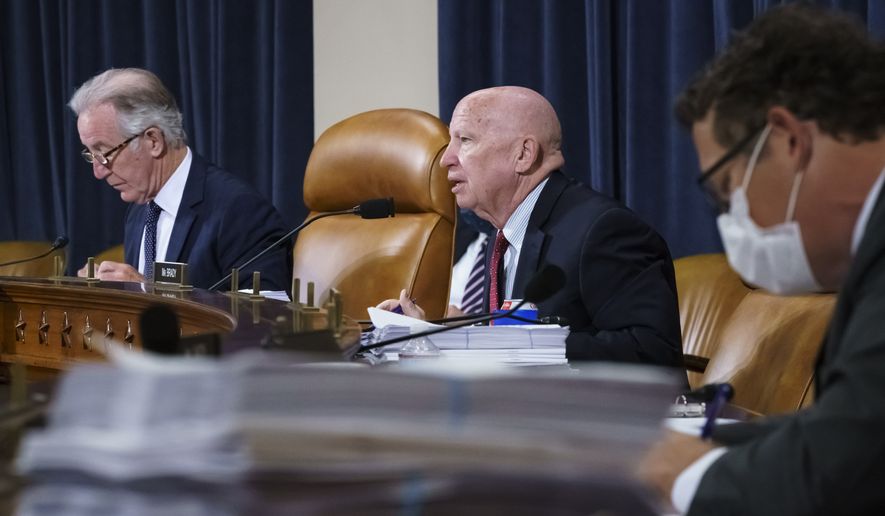House Democrats’ plan to pay for their $3.5 trillion expansion of the federal safety net violates President Biden’s pledge not to raise taxes on individuals making less than $400,000 annually.
An analysis by the Joint Committee on Taxation, a special congressional panel made up of 10 senior lawmakers from both chambers of Congress, found that individuals making above $200,000 would see their tax burden increase. The Joint Committee includes three Democrats from the House Ways and Means panel, who helped author the tax changes meant to pay for the $3.5 trillion “human infrastructure” spending package.
According to the report, the biggest hit would be felt by taxpayers with incomes of more than $1 million annually. Those individuals would see their tax burden jump more than 10% by 2023 if the proposal from House Democrats goes into effect.
Taxpayers making between $500,000 to $1 million annually would see a 1.6% hike in the amount of taxes they owed to the federal government in 2023. That same year, individuals making between $200,000 to $500,000 would also see an increase of 0.3%.
By 2031, according to the Joint Committee, the tax burden on individuals making more than $1 million a year will shrink to slightly over 9%. Meanwhile, taxes will steadily climb on all income earners above $30,000. The burden on those making between $200,000 to $500,000 per year will jump to 1.1%.
“You’ll hear [that] President Biden doesn’t break his pledge on taxing Americans making less than $400,000,” said Texas Rep. Kevin Brady, the ranking Republican on the House Ways and Means panel. “But that’s false as well. … The Biden tax pledge is simply broken in this bill.”
While campaigning for the White House last year, Mr. Biden repeatedly stressed that he would not directly raise taxes on individuals making below $400,000. Instead, he claimed the tax burden would be borne entirely by those that could afford it most: the wealthy.
“Nobody making under 400,000 bucks would have their taxes raised,” Mr. Biden repeated earlier this year during an interview with CNBC. “Period. Bingo.”
House Democrats have been unable to keep the pledge. In crafting the tax changes they hope will pay for their massive social spending bill, they have proposed a series of direct and indirect taxes that will affect all income levels.
This is evident by the Democrats’ proposed hike in capital gains, the amount individuals pay when selling investment assets, and the new taxes on tobacco products. Republicans also point to the various deductions being eliminated, including those for estate taxes, as another rising burden for lower-income individuals.
Altogether, the proposal being championed by Democrats amounts to one of the largest tax increases in U.S. history and would be used to pay for a host of liberal priorities, including expanded health care, educational benefits and immigration reform.
Rep. Carol Miller, a West Virginia Republican who serves on the Ways and Means panel, said the tax changes come at an inopportune moment for workers and the economy.
“While inflation and the cost of living are skyrocketing, Democrats are doubling down with the biggest proposed tax increase in decades,” Mrs. Miller said. “This type of irresponsible spending advances a radical socialist agenda that would burden the middle class, drive our economy into the ground, and force future generations to pay the cost. Unfortunately, these proposed increases further prove how out of touch Democrats are with our workers, families and small businesses.”
Democrats on the House Ways and Means Committee are defending their proposal, arguing that GOP tax cuts under former President Donald Trump are to blame for breaking Mr. Biden’s pledge.
The Trump-era “individual tax cuts expire in 2025, so this table is a reflection of Republicans’ decision in the past to prioritize permanent corporate tax cuts (which we are correcting) over tax relief for working families,” a Democratic aide told The Washington Times.
• Haris Alic can be reached at halic@washingtontimes.com.




Please read our comment policy before commenting.